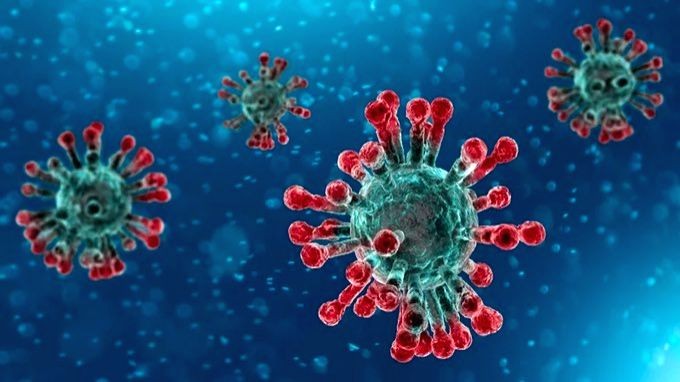Scientists discovered an entirely new form of virus 8.9 kilometers below sea level.
That seems awful, but it’s not as bad as it appears.
The virus was recently discovered in sediments obtained from the Mariana Trench in the western Pacific Ocean by researchers.
This new virus is thought to be a member of a totally new ‘Siphovirus’ family. Because the latter only infects bacteria, humans cannot serve as hosts.
RELATED: Data From The Ice Ages Generates Fresh Concerns About Future Ice Melt And Rising Sea Levels
However, scientists have identified bacteriophages – viruses that live and proliferate in bacterial hosts – before.

A virus was previously detected in the trench at a depth of 8.636km. Despite several discoveries, the nature of these phages remains mostly unknown.
International scientists called the novel virus vB_HmeY_H4907 in a recent study published in Microbiology Spectrum.
It is the ‘deepest known phage isolated to date,’ they claim, and the latest discovery’represents a novel prolific viral family in the ocean.’
RELATED: Scientists Have Calculated The Precise Day On Which An Asteroid With The Force Of 22 Atomic Bombs Is Likely To Strike Earth
The virus was discovered in the hadal zone, which is the deepest portion of the ocean between 6 and 11 kilometers below sea level.

“The hadal trench is the planet’s least explored and most mysterious environment, and it is the deepest habitat for life on Earth’s surface,” the team said of the phage discovery.
“The scarcity of isolated viruses in the hadal trenches has severely limited our understanding of hadal viruses.”
“This study reported the isolation of a temperate phage…from surface sediment in the Mariana Trench at a depth of 8,900 meters.” To the best of our knowledge, it is the ocean’s deepest solitary siphovirus.”
RELATED: Scientists Are Perplexed As To How A Mysterious Gravity Hole Discovered In The Indian Ocean Arose
“We are marine virologists, and our research team’s primary focus lies in investigating the community structure, diversity, distribution patterns, regulatory mechanisms, and ecological roles of viruses and their hosts in various marine habitats, such as polar regions and the deep sea,” co-authors Min Wang, Yue Su, and Yantao Liang told Motherboard.

“Our collaborator Yu-Zhong Zhang’s team isolated host bacteria from the Mariana Trench sediments.”
“Their team has been investigating microbial life in various extreme environments, including the Mariana Trench, whereas we are primarily interested in viruses.” Given the peculiar structure of the trench, the chances of isolating viruses using traditional infection procedures are slim.”
The phage infects a bacterial species in the Halomonas family, according to the authors’ published research.
The latter appear to have evolved to deep hadal conditions and are recognized for their ‘ability to break down petroleum hydrocarbons, grow in habitats with high salt concentrations and alkaline pH, and great tolerance to pollution.’
RELATED: Scientists Warn That The Atlantic Ocean Circulation May Collapse By 2060
According to the report, the phage is ‘abundant in the Mariana Trench’. This implies that it may play a ‘essential function’ in hadal habitats such as the Antarctic seafloor and deep-sea hydrothermal vents.

Researchers have been able to conduct a genomic investigation of vB_HmeY_H4907 since its discovery.
According to the research, it has a ‘icosahedron head’ with an average diameter of 65 nanometers and a ‘long, non-contractible tail’. At 183 nanometers, it is slightly longer than the head.
To summarize their findings, scientists noted that their research has ‘deepened’ their understanding of hadal phages.
It is also claimed that the virus’s genetic variety and genomic traits have been further investigated in order to give a ‘theoretical framework’ for more in-depth investigation.
Despite the fact that this deep-sea virus cannot infect humans, it is critical to continue studying it because it has been regarded as a “essential regulator of global ecology.”
Wang also claimed that the research intends to explore the’molecular machinery that drives relationships between deep-sea viruses and their hosts’ in the future.
Download The Radiant App To Start Watching!
Web: Watch Now
LGTV™: Download
ROKU™: Download
XBox™: Download
Samsung TV™: Download
Amazon Fire TV™: Download
Android TV™: Download

